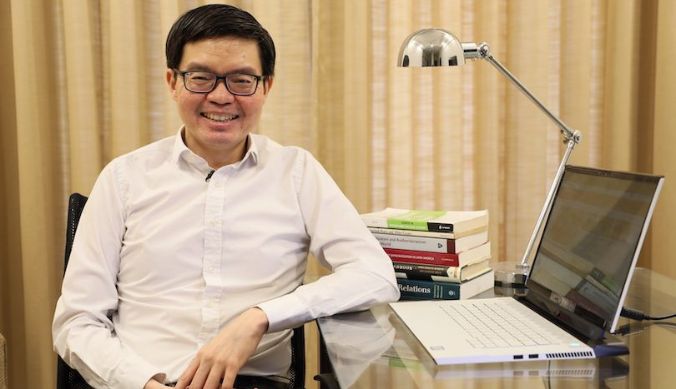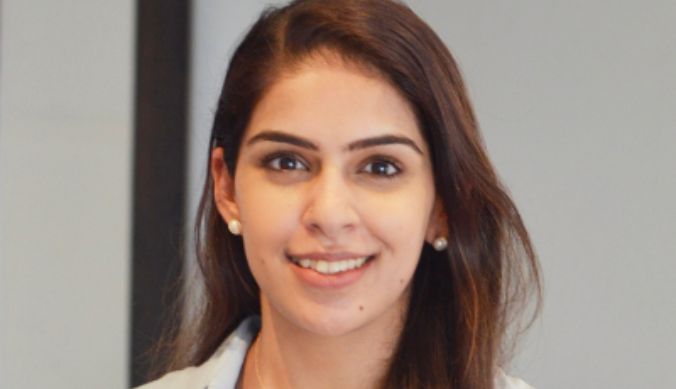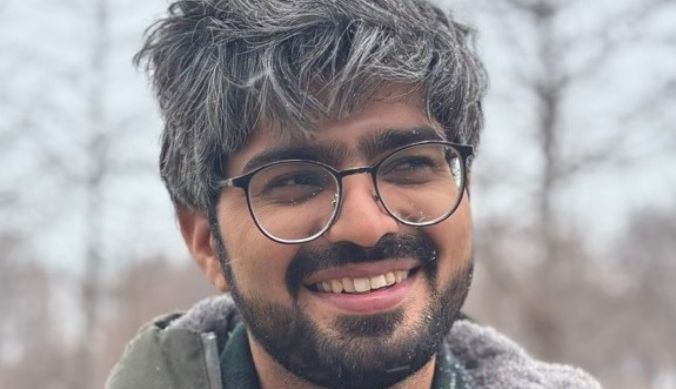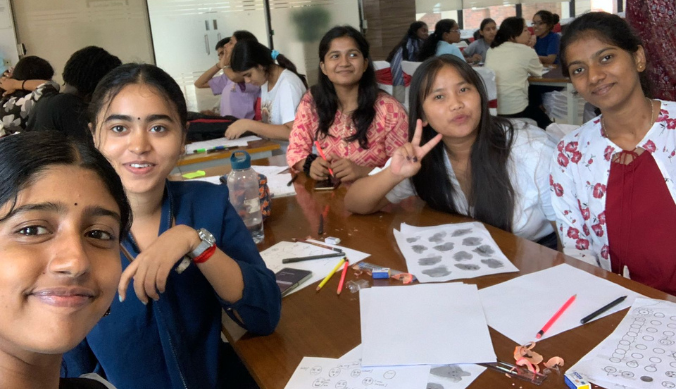Empower Women Through Project Nilay and Safe Odisha for Her
Learn more about how Prachi Mishra's firsthand experiences with the struggles of women and marginalised communities shaped her vision to become an advocate for change in her local community through Project Nilay and Save Odisha for Her.
Hailing from a small village in Odisha, Prachi Mishra, a Young India Fellow at Ashoka University, opens up about her inspiration to start Project Nilay and Save Odisha for Her initiatives. In this interview, Prachi discusses her personal experiences of growing up in a place deeply affected by gender, class, and caste discrimination, which deepened her commitment to social change and addressing the systemic issues affecting marginalised communities.
How have your past experiences shaped your unique perspective?
From a young age, I saw firsthand the struggles women and marginalised communities face, not just in terms of economic hardship but also through societal constraints that limited their freedom and potential. This environment shaped me into someone who couldn’t accept these limitations. My mother was my biggest supporter and cheerleader; she fought many battles at home for me to have access to education, work, and be financially independent —every opportunity that she was denied. My gender and class led me to have many humiliating experiences in childhood, which fueled my commitment to creating change for myself and others around me. I have since tried to address systemic issues like gender inequality and access to education and employment opportunities through my work with Project Nilay and Safe Odisha for Her.
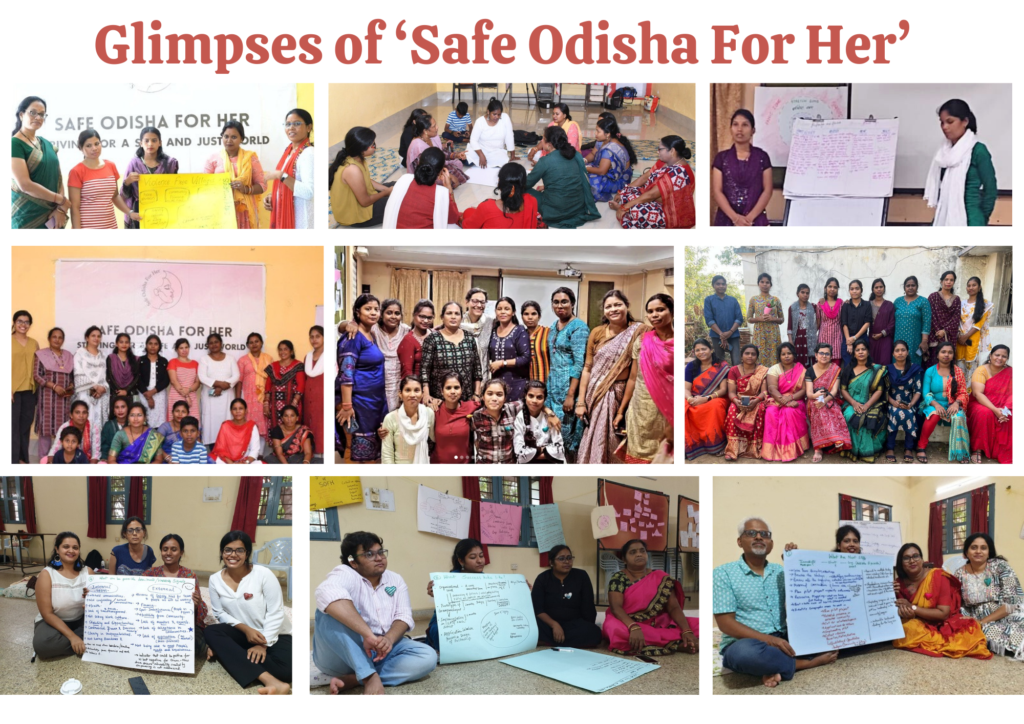
How did the idea for Project Nilay and Save Odisha for Her come about?
The inspiration for Project Nilay and Save Odisha for Her came from the lived experiences I witnessed growing up in Odisha. Women I grew up seeing around me in my village were held back by traditional norms and lack of support, and I knew I wanted to do something to change that. Safe Odisha for Her focuses on supporting women in their socio-political leadership journeys, increasing representation at the Panchayati Raj governance level, and enabling them to become micro-entrepreneurs and advocates for change in their community. Odisha is 3rd in the country when it comes to Gender Based Violence. So, our fellows are trained in the 3-year-long fellowship to address GBV through hyperlocal campaigns and initiatives.
Project Nilay was born from a desire to provide children in orphanages with the education and life skills they need to have a better future and to highlight their challenges and lack of institutional support for them. We are working on policy advocacy, asking the Govt to appoint life and career counsellors at orphanages and increase the amount of aftercare support for care leavers. These projects come from my strong belief that education and political participation are key to addressing deeply rooted issues like gender-based violence and poverty.

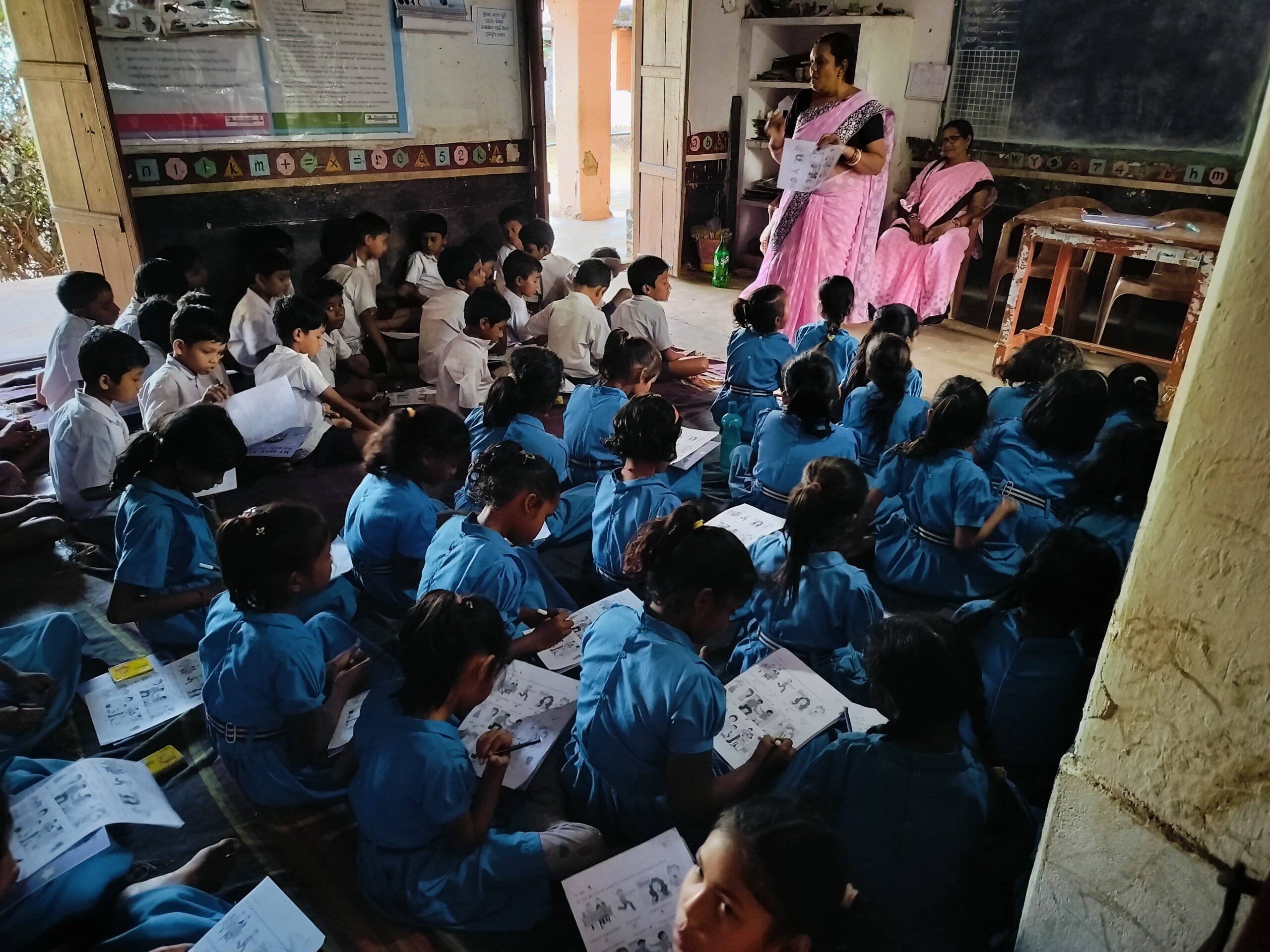
To what extent did Ashoka’s liberal values contribute to your current beliefs and goals?
I see Ashoka University’s environment as instrumental in shaping my mindset. I don’t have a strong academic background. I have studied in Govt school and college all my life and my learning has been spontaneous and ad-hoc. I came to Ashoka with the aim of being exposed to diverse schools of thought, broadening my understanding of social issues, and deepening it with evidence and empirical analysis. This is helping me refine my approach to policy and grassroots activism, merging theory with practice in a way that has been foundational to my work on Project Nilay and Safe Odisha for Her.
What kind of change do you hope to see in society through this initiative?
With Project Nilay, the aim is to ensure that every child in childcare institutions/orphanages is supported by the state and the community to have a safe childhood, is receiving education and employment opportunities, has socio-emotional support systems in place for them to lead a happy life in orphanage and as they transition out of it at the age of 18. We are currently working with 500+ children in 14 orphanages in 3 districts in Odisha. We are also advocating for policy change which we hope happens soon.
For Safe Odisha for Her (SOFH), the goal is to have a network of women leaders at the grassroots level who can challenge and change the oppressive norms within their communities, and completely eradicate Gender and caste-based violence (I know that’s a long long journey till we reach here). By 2030, we hope to have SOFH fellows in all 6000+ gram panchayats of Odisha. Currently, we are only focusing on one district Kalahandi where we have 30 fellows in each gram panchayat.

Why did you particularly choose Odisha? Do you plan to expand this initiative to other cities?
Odisha was a natural choice for me because it’s my home, and having lived there all my life I’ve seen firsthand the urgent need for change in the state. It ranks among the top states in India for crimes against women, with a low conviction rate, and there are significant gaps in access to education and support systems for vulnerable communities. My personal connection to Odisha and familiarity with the landscape make it the ideal starting point for these initiatives.
While my work has started in Odisha, I certainly plan to expand. Both Project Nilay and Safe Odisha for Her are scalable, and my long-term vision is to replicate these models in other parts of India, contextualising them to the unique challenges of different regions. By focusing on empowerment through education and political engagement, I hope both organisations create a ripple effect of change that extends far beyond Odisha.
Study at Ashoka









